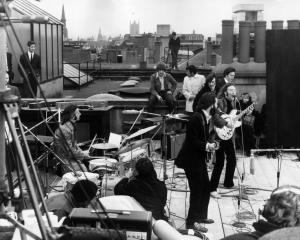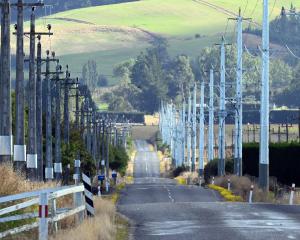Bruce Logan warns about what he sees as the dangers in same-sex marriage.
Here in France, like New Zealand, same-sex marriage is presented to a puzzled population under the banner of equality. And who can fight against equality?
Well, some French friends put the notion of equality under examination. They say same-sex marriage "n'est pas l'egalite, il s'agit de la liberte". It's not about equality; it's about liberty.
Governments who choose to redefine marriage seldom understand what they're doing. "Il a toute la laideur de la fierte." It has all the ugliness of pride.
The issue is not about equality or the success of any one couple's marriage. The issue is about the connection between the state and marriage in civil society. Who decides what marriage is and what it's for?
Marriage is neither essentially religious nor a product of tradition. It is not the child of the state.
Neither is marriage what Lynne Featherstone, the British Equalities Minister, claims. "Marriage is a right of passage for couples who want to show they are in a committed relationship, for people who want to show they have found love and wish to remain together until death do them part." Her historical vision is limited; her logic is deficient and her fusion of the Anglican Prayer Book with modern idiom disingenuous.
Marriage is the consequence of who we are.
We do not make it; it makes us. We are male and female.
In the simple and hopeful business of being alive, we have children in a union of accepted responsibility, love and thankfulness. It is the cementing of two opposite halves of the human being through which new life may be created. That some couples decide not to get married does not change the biology. That some cannot have children or decide not to is beside the point.
To say that you do not believe in marriage or that it is superfluous does not change the truth of its historical and cultural value.
The dogma that asserts marriage is primarily about love and commitment is frequently accompanied by the counter-claim: "I'm in love and committed so why do I need to bother about marriage?
Marriage is what I say it is and anyway I don't need it." That blurring of the status and meaning of marriage is contributing to a range of unfortunate consequences yet to be grasped.
As well as ignoring the needs of children, demand for same-sex marriage is ironic.
We have never had such a plethora of data pointing out the fundamental economic, social and psychological benefits of vigorous and enduring married families.
Marriage is pivotal to intergenerational order.
Without it, we have a shambles and increasing poverty.
The so-called conservative case for same-sex marriage favoured by the British Prime Minister tumbles out of a category error.
"Marriage is a good thing. It stabilises the lives of those who participate; especially men. Therefore they should be able to marry each other if they are committed". But as soon as same-sex marriage is granted, marriage which was originally sought has been changed to something different; from an institution prior to the state to one determined by the state.
Of course the state has had regulations around marriage for a very long time. But with the advent of same-sex marriage we have something entirely new.
If the state defines marriage, the family is no longer an independent reality declaring daily to the state its limitations; that there is a region of civil society it should not attempt to control.
If the state passes a law that changes the nature of marriage, and consequently family, then every citizen's liberty is threatened. Why?
That area of most intimate human life that was once outside the power of the state to manipulate will be weakened. In becoming the author of marriage, the state will eventually erode religious freedom and then freedom of speech. The "new marriage" will become an institution that the state must enforce. Any exemption given to the church will be temporary and dependent only on residual moral sensitivities.
Human rights were once seen as a cornerstone of liberty because they were the consequence of a free society aware of state limits and independent spheres of authority (e.g. marriage, family and religion). If marriage becomes what the state decides, citizens will no longer have any framework independent of the state from which to argue their case about family form.
It is doubtful there is any society known to history or anthropology where social order has not been based on marriage between a man and a woman. It has always been a historical and universal understanding of a binding contract to enhance social order and encourage responsible child care.
Societies that fail to understand this abuse their children. We should know that. We have plenty of evidence.
• Bruce Logan is an educator and writer who has been director of the Maxim Institute in New Zealand.











